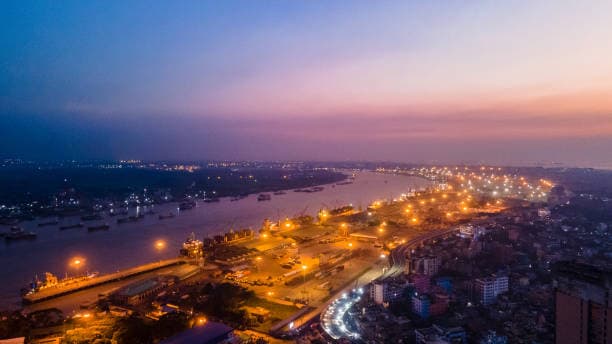Where Ideas for a Greener Planet Take Flight
Southeast Asia is one of the most vulnerable regions to climate change, and faces rising sea levels, heat waves, floods and droughts, and increasingly intense and unpredictable weather events. This region has experienced an annual mean temperature increase of 0.14°C to 0.20°C per decade since the 1960s due to global warming trends and increased greenhouse gas emissions.
At SustainLaunch Labs, we enable young entrepreneurs in the Southeast regions to create innovative solutions that build resilience against natural disasters, mitigate the effects of rising sea levels, and tackle the challenges of displacement and livelihood loss caused by climate change. We prioritize nature-based solutions, which include harnessing natural ecosystems to achieve environmental benefits and gain a competitive edge. We actively interact with climate-vulnerable communities in Bangladesh, tailoring our efforts to their unique needs and difficulties.
We designed our accelerator program to equip start-ups with the essential skills and resources to achieve financial independence, thereby reducing their reliance on external funding. Additionally, we encourage the exploration of alternative financing methods, such as impact investment, which links financial returns to quantifiable social and environmental benefits.
We welcome start-ups working in areas such as:
Renewable energy and clean technologies: Start-ups in this area develop technologies and solutions that generate energy from renewable sources such as solar, wind, hydro, and geothermal. They may also work on innovations in energy storage, smart grids, and clean energy infrastructure.
Sustainable agriculture and food systems: Start-ups innovate in areas like precision farming, vertical farming, organic farming, sustainable aquaculture, and alternative proteins. They aim to improve food production efficiency while minimizing environmental impact.
Circular economy and waste reduction: Start-ups create solutions to reduce waste, promote recycling, and reuse materials. This includes developing products designed for a circular lifecycle, waste-to-energy technologies, and innovations in packaging.
Climate resilience and adaptation: Start-ups develop technologies and strategies to help communities and ecosystems adapt to the impacts of climate change. This includes solutions for disaster risk management, resilient infrastructure, and water management.
Green transportation and mobility: Start-ups innovate in electric vehicles (EVs), shared mobility, autonomous driving, and sustainable public transportation solutions. They aim to reduce emissions and improve urban mobility.
Energy efficiency and conservation: Start-ups develop technologies that improve energy efficiency in buildings, industries, and appliances. This includes smart energy management systems, efficient lighting, and insulation materials.
Eco-friendly products and services: Start-ups create products and services that have minimal environmental impact, such as biodegradable materials, sustainable fashion, and eco-friendly consumer goods.
Our Focused Areas





Where We Work
Our global work calls for a global presence. Check out where we have teams on the ground!

Bangkok, Thailand

Dhaka, Bangladesh

Chittagong, Bangladesh

Ho Chi Minh, Vietnam

Kathmundu, Nepal
